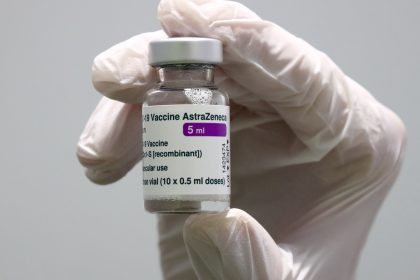FDA Approves Marketing of DNA Test for Cancer Predisposition

WASHINGTON — The Food and Drug Administration has granted de novo marketing authorization for the Invitae Common Hereditary Cancers Panel, an in vitro diagnostic test that can help detect hundreds of genetic variants associated with an elevated risk of developing certain cancers.
The test can also help identify potentially cancer-associated hereditary variants in individuals with already-diagnosed cancer, the agency said.
The panel is the first of its kind to be granted FDA marketing authorization. In doing so, the agency created a new regulatory classification, the 510(k) premarket process, that will allow future devices of the same type and intended use to seek premarket approval by demonstrating substantial equivalence to the approved device.
In creating the new classification, the FDA said it hopes to save developers time and expense compared to other review pathways.
The newly approved Invitae Common Hereditary Cancers Panel evaluates DNA extracted from a blood sample to identify variants in 47 genes known to be associated with an elevated risk of developing certain types of cancer.
“This test can assess multiple genes in a single test by using next-generation sequencing, which has proven helpful in providing insight into genetic variants with sensitivity and speed,” said Dr. Jeff Shuren, J.D., director of the FDA’s Center for Devices and Radiological Health.
According to the Centers for Disease Control and Prevention, there are more than 100 different documented types of cancer, a disease in which abnormal cells divide out of control and are able to invade other tissue. It is the second leading cause of death in the United States behind heart disease.
Specimens for the Invitae Common Hereditary Cancers Panel are collected at a point of care, such as a doctor’s office, and sent to a laboratory for testing.
The clinical interpretation of the variants is based on evidence from published literature, public databases, prediction programs and Invitae’s internal curated variants database using Invitae’s variant interpretation criteria consistent with those established by appropriate professional organizations or accredited boards.
Some of the most clinically significant genes that the test identifies are: BRCA1 and BRCA2, which are genes with known associations to hereditary breast and ovarian cancer syndrome, Lynch syndrome associated genes (MLH1, MSH2, MSH6, PMS2 and EPCAM), CDH1 (mainly associated with hereditary diffuse gastric cancer and lobular breast cancer) and STK11 (associated with Peutz-Jeghers syndrome).
The FDA reviewed the Invitae Common Hereditary Cancers Panel under the FDA’s de novo premarket review pathway, a regulatory pathway for low- to moderate-risk devices of a new type. To validate the performance, Invitae tested over 9,000 clinical samples, and achieved ≥99.0% accuracy for all tested variant types.
The risks associated with the test are mainly the possibility of false positive and false negative test results, as well as possible misunderstanding of the results.
Further, since this test is not intended to identify or evaluate all known genes associated with a predisposition for cancer, and genetics are not the only factor in development of cancer, there is a risk of patients misunderstanding that they still have some risk of developing cancer following a negative test result.
These risks are mitigated by the analytical performance validation, clinical validation and appropriate labeling of this test, the FDA said.
Along with this de novo authorization, the agency is establishing special controls that define the requirements related to labeling and performance testing.
For example, accuracy for reporting of substitutions, insertions/deletions and copy number variants must be ≥99.0% for positive agreement and ≥99.9% for negative agreement with a validated orthogonal method.
When met, the special controls, in combination with general controls, provide a reasonable assurance of safety and effectiveness for tests of this type.
Dan can be reached at [email protected] and @DanMcCue

























